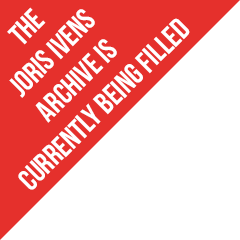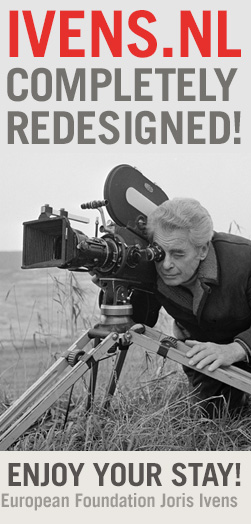

Curator: European Foundation Joris Ivens
Name director: Pedro Mota Tavares
Name film: REDUTO
English title: REDOUBT
Year of production: 2014
Year and place of premiere: 2014/ DocLisboa (Lisbon, PT)
Shooting format: DV video
We picked ourselves -the European Foundation Joris Ivens- as the first curator of the Politics and Poetry page. The film we want to show is from Pedro Tavares from Portugal, who had an internship at the foundation last year. He was very enthusiastic on the topic 'politics and poetry' so we like him to open up this page. READ INTERVIEW WITH PEDRO MOTA TAVARES:
How does your film relate to the theme ‘politics and poetry’ in your opinion? My film is related to those topics by trying to convey a new perspective on those which have to work under certain conditions. Someone would say that there is very little space for poetry to be shown on a working place, but the most important thing to keep in mind is not to romanticize the reality you are dealing with. Poetry appears almost naturally once you find it; making a film is always a political gesture – the thing is that some films are more “politically correct” than others.
Are politics and poetry (or politics and arts) two separate worlds according to you? Why / why not? They’re not two separate worlds. Both politics and the arts are produced by human
beings and they both express a certain anxiety towards the problems of humanity, which are also the problems of the self.
Tell something about your history (life/work/education/happenings) and what was crucial for your evolution of thoughts and ideas about the art (of filmmaking) and politics? An
example: while I was preparing to shoot REDOUBT I had this idea that my relationship with the factory workers would be a lot more easier and that they would immediately recognize me as “one of them”. Coming from a bourgeois family with a bourgeois way of thinking, I obviously had a lot of preconceptions about the working class. It was a shock to me – due to the fact of being still very naïf –learning that I was in a position of power simply by coming from the outside and by holding a camera in my hands. Even though I was seen almost as an enemy to the eyes of the workers, I knew that I had to take advantage of the fact of being in a privileged situation in order to serve them in their daily struggle.
What would you like to happen within (film)art and/or politics and do you have recent inspiring examples of that? I would like to see film become once again closer to “real life”, which means portraying real human beings with real human problems, such as getting up in the morning in order to go to work or having to prepare soup when there are almost no vegetables available. This responsibility should not belong exclusively to documentary filmmaking, but I believe fiction has become more and more irresponsible. On this matter, Wang Bing is a good example of someone who has been playing a very important role on keeping a certain tradition alive.
